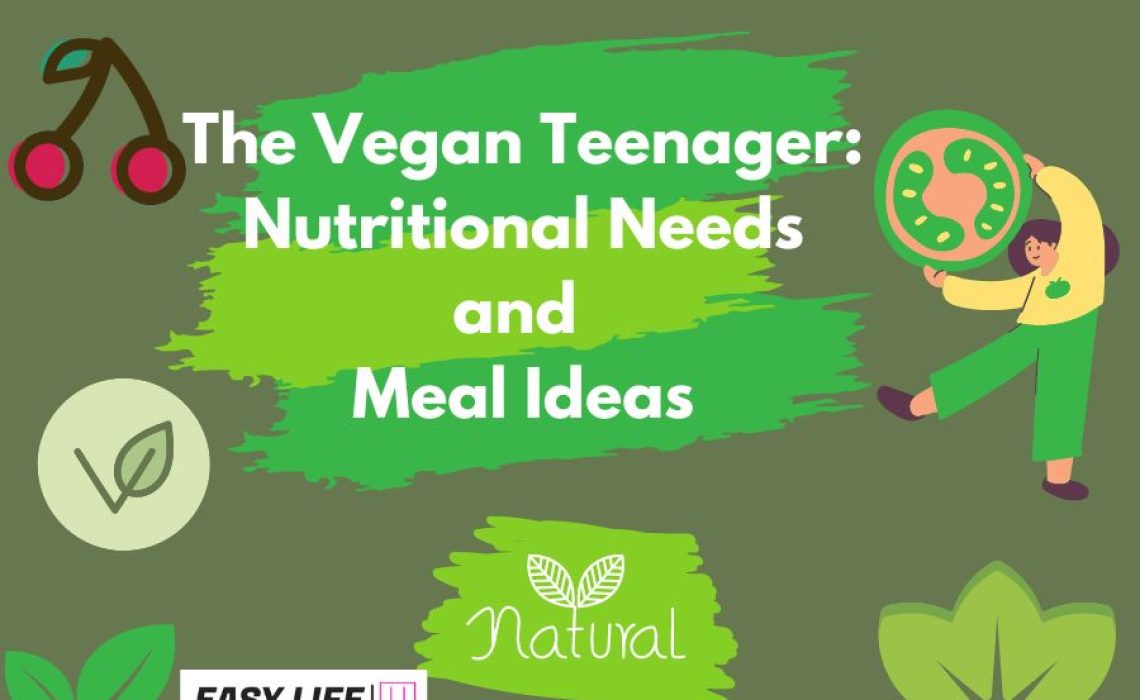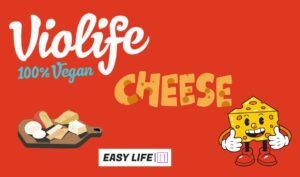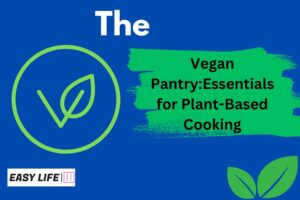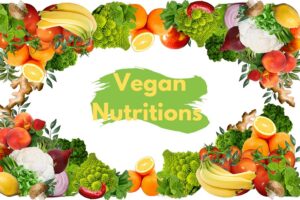Vegan Teenager: “Choosing a vegan lifestyle can be a significant, life-changing decision for anyone. For teenagers, it can be particularly impactful considering their unique nutritional needs and the role that diet plays in their growth and development.
In recent years, the popularity of veganism, which involves eliminating all animal products from the diet, has been on the rise. This trend is partly due to growing environmental consciousness, ethical concerns about animal welfare, and the potential health benefits associated with plant-based diets. A growing number of teenagers are also choosing to embrace veganism, making it important to provide them with accurate information to ensure they meet all their nutritional needs.
This blog post aims to provide a comprehensive guide to understanding the nutritional needs of vegan teenagers. We’ll cover the key nutrients that every teenager needs for optimal health, the unique challenges a vegan diet may present, and how these can be addressed effectively. Additionally, we will explore some delicious, nutrient-dense vegan meal ideas designed specifically for teens, ensuring they get all the necessary nutrients while enjoying their meals. Whether you are a vegan teenager, a parent of one, or just considering the vegan lifestyle, this guide is for you.
Table of Contents
Toggle1. The Nutritional Needs of Teenagers
Teenagers are in a critical stage of life characterized by rapid growth and development. During this time, their bodies require optimal nutrition to support these changes and promote overall health. Let’s break down some of the key nutrients that every teenager needs for optimal development.
A. Overview of Key Nutrients and their Importance for Growth and Development
- Protein: As the building block of cells, protein is essential for growth, tissue repair, immune function, and the creation of enzymes and hormones. For teenagers, an adequate protein intake is crucial as it supports their rapid growth and development.
- Calcium: This mineral is vital for the development and maintenance of strong bones and teeth. Teenagers require a higher amount of calcium to support their rapid bone growth.
- Iron: Iron is essential for making haemoglobin, a protein in red blood cells that carries oxygen to all parts of the body. It is also necessary for physical growth, neurological development, cellular functioning, and synthesis of some hormones.
- Vitamin D: This nutrient helps the body absorb calcium and is therefore critical for building and maintaining strong, healthy bones.
- Vitamin A: Essential for normal growth and development, Vitamin A helps to keep the skin, eyes, and immune system healthy.
- B Vitamins: This group of vitamins, including folic acid, is important for metabolism, brain development, and blood production.
B. Role of Proper Nutrition in Brain Development, Physical Performance, and Emotional Health
Good nutrition doesn’t just support physical growth and development. It also plays a crucial role in brain development, physical performance, and emotional health.
- Brain Development: Nutrients like omega-3 fatty acids, iron, and zinc play significant roles in cognitive function and brain development, impacting a teenager’s learning and concentration.
- Physical Performance: For active teens, a diet rich in energy-providing nutrients like carbohydrates and protein is crucial. It supports their high energy needs and aids in recovery and performance in physical activities.
- Emotional Health: There is a strong link between diet and mental health. Consuming a balanced diet rich in fruits, vegetables, whole grains, and lean proteins can help improve mood and energy levels, while a diet high in processed foods can contribute to anxiety, depression, and other mental health issues.
2. The Nutritional Challenges of a Vegan Diet
A vegan diet can offer a wealth of health benefits, including lower rates of obesity, heart disease, high blood pressure, and type 2 diabetes. However, certain nutrients are harder to get from a vegan diet due to the absence of animal products. Understanding these challenges is the first step to successfully implementing a vegan lifestyle.
A. Misconceptions about Veganism
Despite its growing popularity, veganism is often misunderstood. Some people believe it’s difficult to get enough protein or that all vegan foods are healthy, which isn’t necessarily the case. Education is key to debunking these misconceptions and promoting a balanced, nutrient-dense vegan diet.
B. Nutrients Potentially Lacking in a Vegan Diet
- Vitamin B12: This vitamin is crucial for nerve function and the production of red blood cells. It’s primarily found in animal products, so vegans must get it from fortified foods or supplements.
- Iron: While plant-based foods do contain iron, it’s not as readily absorbed by the body as iron from animal products. Vegans need to ensure they eat enough iron-rich foods and foods high in vitamin C to improve iron absorption.
- Calcium: Traditionally associated with dairy products, calcium can be obtained from various plant sources. However, vegans need to ensure they’re consuming enough of these sources to meet their daily calcium requirements.
- Protein: While plants do provide protein, some vegans may struggle to get enough protein if they’re not consuming a variety of plant-based protein sources.
- Omega-3 Fatty Acids: Essential for brain health, these are commonly found in fatty fish. Vegans can obtain them from flaxseeds, chia seeds, hemp seeds, and algae-based supplements.
C. Importance of Proper Planning for a Balanced Vegan Diet
While it’s possible to meet all nutrient needs on a vegan diet, it does require some planning. Emphasizing variety, prioritizing nutrient-dense foods, and considering fortified foods or supplements when needed can help vegans achieve a balanced diet and meet their nutritional needs.
3. Nutritional Needs of a Vegan Teenager
Vegan teenagers have the same basic nutritional needs as all teenagers; however, there are specific considerations to ensure they meet their requirements exclusively from plant-based sources.
A. Adaptation of General Nutritional Needs to a Vegan Diet
- Protein: While animal products are often key sources of protein, vegan teens can meet their protein needs with plant-based sources like legumes, nuts, seeds, and whole grains.
- Calcium: Calcium is crucial for bone health, especially during the teenage years. Vegan sources of calcium include fortified plant kinds of milk, tofu made with calcium sulfate, and certain green leafy vegetables.
- Iron: Iron is essential for energy and transporting oxygen in the blood. Vegan teens can get iron from foods like lentils, chickpeas, fortified cereals, and pumpkin seeds. Consuming these with foods high in vitamin C can increase iron absorption.
- Vitamin D: As many teenagers are deficient in vitamin D, it’s important to get enough sunlight, eat fortified foods, and consider taking a vitamin D supplement.
- Vitamin B12: B12 is found almost exclusively in animal products, making it a common concern for vegans. B12-fortified foods or a B12 supplement can help meet this need.
- Omega-3 Fatty Acids: While often associated with fish, vegan teens can get omega-3 fatty acids from flaxseeds, chia seeds, hemp seeds, and algae-based supplements.
B. Specific Considerations for a Vegan Teenager
- Growth: Vegan teens need to ensure they’re getting enough calories and nutrients to support their growth and development.
- Energy: With their active lifestyles, vegan teens need plenty of whole grains, legumes, and fruits for quick energy.
- Bone Health: Adequate calcium and vitamin D are crucial for developing strong bones.
- Brain Development: Omega-3 fatty acids, iron, zinc, and vitamin B12 are vital for brain development.
C. Dealing with Peer Pressure and Social Situations
Navigating social situations can be tricky for vegan teenagers. Having strategies for dealing with peer pressure, dining out, and attending social events can help them stick to their vegan lifestyle without feeling isolated or excluded.
4. Meal Ideas for a Vegan Teenager
Creating a diverse and exciting meal plan can make a vegan lifestyle enjoyable and satisfying, ensuring that vegan teens get the nutrients they need while also enjoying their food.
A. Breakfast Options
- Overnight Oats: Combine oats, chia seeds, plant-based milk, and a sweetener of choice. Refrigerate overnight and top with fresh fruits and nuts in the morning.
- Vegan Scramble: Using tofu or chickpea flour, create a protein-packed scramble. Add vegetables for extra nutrients.
- Smoothies: Blend fruits with plant-based milk or yoghurt, adding a spoonful of nut butter or a handful of spinach for extra nutrition.
B. Lunch and Dinner Options
- Vegan Chili: A hearty chilli made with beans, lentils, vegetables, and spices can be a protein and fibre-rich meal.
- Stir-fries: Combine tofu or tempeh with a variety of vegetables and serve over brown rice or quinoa for a balanced meal.
- Pasta dishes: Opt for whole grain or legume-based pasta and top with tomato sauce and plenty of vegetables. Add nutritional yeast for a cheesy flavour and a source of B vitamins.
C. Snacks and Desserts
- Hummus and Veggies: A high-protein snack that provides essential vitamins and minerals.
- Fruit and Nut Butter: Pairing fruit with nut butter adds healthy fats and protein to the snack, making it more satisfying.
- Vegan Muffins or Cookies: There are plenty of vegan recipes available for healthier versions of these sweet treats, often using oat flour, almond flour, or other plant-based ingredients.
Remember, the key to a healthy vegan diet is variety. Try to include as many different plant-based foods in your diet as possible to ensure you’re getting a wide range of nutrients.
5. Resources for Vegan Teenagers and Their Parents
Navigating a vegan lifestyle as a teenager or as a parent of a vegan teenager can be challenging, especially without the right resources. Here are some valuable tools to aid in maintaining a healthy and fulfilling vegan lifestyle:
A. Useful Books and Websites: Vegan Teenager
- Books:
- “The Complete Idiot’s Guide to Vegan Living” by Ray Sammartano and Beverly Lynn Bennett
- “Vegan Lunch Box” by Jennifer McCann
- “The Vegan Teen Cookbook: Easy Vegan Meals from What’s Already in Your Kitchen” by Cathy Hutchison
- Websites:
- The Vegan Society (www.vegansociety.com)
- NutritionFacts.org
- Plant-Based on a Budget (www.plantbasedonabudget.com)
B. Supportive Communities and Social Media Groups
Online communities can provide much-needed support, ideas, and inspiration. Websites like Reddit and Facebook host numerous vegan communities. Instagram and YouTube also have large vegan influencers who share meal ideas, nutrition tips, and lifestyle advice.
C. Tips for Grocery Shopping and Eating Out as a Vegan Teenager
- Grocery Shopping: Look for local farmers’ markets or health food stores that offer a wide variety of fruits, vegetables, grains, and legumes. Also, many mainstream grocery stores now carry vegan options.
- Eating Out: Research local restaurants for vegan-friendly options. Websites and apps like HappyCow can help locate vegan and vegan-friendly restaurants in your area.
By using these resources, vegan teenagers and their parents can ensure a well-balanced and satisfying diet that supports the teenager’s growth and development. Remember, the transition might be challenging at times, but the benefits of a vegan lifestyle can be well worth the effort.
6. Conclusion: Vegan Teenager
Navigating the teenage years as a vegan, or as a parent of a vegan teenager, can seem like a daunting task. However, with the correct information, proper planning, and a healthy dose of creativity, a vegan diet can not only meet all of a teenager’s nutritional needs but also provide a foundation for a lifetime of healthy eating habits.
The potential benefits of a vegan lifestyle – from promoting personal health to contributing to environmental sustainability – are significant. With the multitude of resources available today, it’s entirely feasible for teenagers to embrace a balanced, fulfilling vegan lifestyle.
The key to maintaining a healthy vegan diet lies in education, preparation, and variety. Ensuring a wide range of plant-based foods can help to meet nutritional needs and also keep meals exciting. And let’s not forget – vegan food can be just as delicious, if not more so, as any other cuisine!
As a vegan teenager or a parent of one, your journey is not just about food. It’s also about making ethical choices, fostering compassion, and leading a lifestyle that’s in line with your values. It may not always be easy, but it’s an incredibly rewarding path to take. Stay strong, keep learning, and enjoy the journey.
7. References
- “Position of the American Dietetic Association: Vegetarian Diets.” Craig, W. J., Mangels, A. R., American Dietetic Association., Journal of the American Dietetic Association, 2009.
- “Nutrient Profiles of Vegetarian and Non-Vegetarian Dietary Patterns.” Rizzo NS, Jaceldo-Siegl K, Sabate J, Fraser GE., Journal of the Academy of Nutrition and Dietetics, 2013.
- “Health effects of vegan diets.” Craig WJ., The American Journal of Clinical Nutrition, 2009.
- “Dietary Guidelines for Americans, 2020-2025.” U.S. Department of Health and Human Services and U.S. Department of Agriculture.
- “The Vegan Society.” www.vegansociety.com. Accessed May 2023.
- “NutritionFacts.org.” www.nutritionfacts.org. Accessed May 2023.
- “Plant-Based on a Budget.” www.plantbasedonabudget.com. Accessed May 2023.
- “Adolescent Nutritional Status and Its Association with Village-Level Factors in Tanzania.” Gelli, A., Hawkes, C., Donovan, J., Harris, J., Allen, S.L., De Brauw, A., Henson, S., Johnson, N., Garrett, J., Ryckembusch, D., Public Health Nutrition, 2015.










3 thoughts on “The Vegan Teenager: Nutritional Needs and Meal Ideas”
Pingback: Plant-Based Protein: The Ultimate Guide for Vegans
Pingback: Vegan on a Budget: How to Eat Well Without Breaking the Bank
Pingback: The Vegan Diet And Environment: Unveiling the Connection